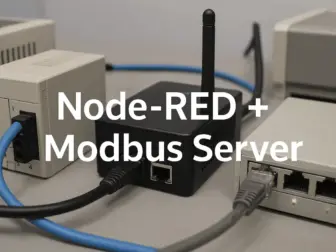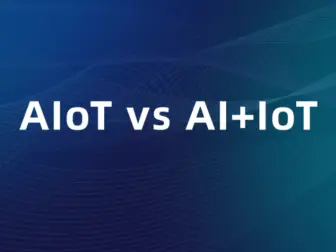Tag - Industrial IoT
Blog, IoT Protocols and Interoperability , November 25, 2025 , Data Acquisition, Edge Computing, Industrial IoT, IoT Gateway, Modbus TCP, MQTT, Node-RED
AI and Machine Learning, Blog , February 19, 2025 , AIoT, Cloud-Edge Collaboration, Data Analysis, embedded development, Healthcare Devices, Industrial IoT, iot, Smart Cities, Smart Homes
AI and Machine Learning, Blog , January 26, 2025 , AI-Driven IoT, automation, Big Models, Data Analysis, Edge Computing, Industrial IoT, iot, Smart Agriculture, Smart Decision-Making
Blog, IoT Protocols and Interoperability , December 27, 2024 , 5G RedCap, cellular modules, connectivity technology, Industrial IoT, iot, IoT Trends, smart wearables, video surveillance
Blog, IoT Protocols and Interoperability , December 19, 2024 , chip selection, domestic chips, embedded development, Industrial IoT, iot, MCU, MPU, smart Home, SoC
- 1
- 2
The Impact of Industrial IoT on Manufacturing Efficiency and Operations
Industrial Internet of Things (IIoT) has revolutionized the manufacturing industry by enabling machines, devices, sensors, and other equipment to communicate and share data in real-time. This connectivity allows for greater automation, efficiency, and productivity in manufacturing operations.
One of the key benefits of Industrial IoT is predictive maintenance. By collecting data from sensors embedded in machines, manufacturers can predict when equipment is likely to fail and proactively schedule maintenance to avoid costly downtime. This predictive maintenance approach not only saves money on repairs but also improves overall equipment effectiveness.
Furthermore, IIoT enables manufacturers to optimize their production processes through data analytics. By analyzing data collected from sensors and other connected devices, companies can identify inefficiencies, bottlenecks, and other areas for improvement. This data-driven approach to manufacturing allows companies to make informed decisions that lead to increased productivity and reduced waste.
Another important aspect of Industrial IoT is supply chain management. By tracking and monitoring inventory levels, shipments, and other logistics in real-time, manufacturers can streamline their supply chain operations and reduce costs. This increased visibility into the supply chain also enables companies to respond quickly to changes in demand and other market fluctuations.
In addition to improving efficiency and operations, Industrial IoT also enhances worker safety in manufacturing facilities. By using connected devices and sensors to monitor environmental conditions, equipment performance, and employee activities, companies can identify potential safety hazards and take proactive measures to prevent accidents. This focus on safety not only protects workers but also reduces the risk of costly liability claims.
Overall, Industrial IoT is transforming the manufacturing industry by driving innovation, improving efficiency, and enhancing operational performance. Companies that embrace IIoT technologies stand to gain a competitive advantage in the market by staying ahead of the curve and meeting the demands of an increasingly connected and data-driven world.







